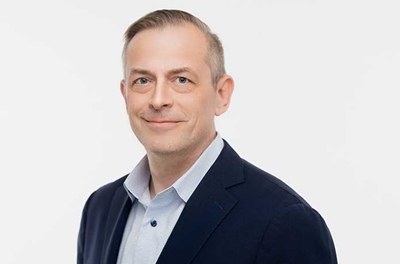Building a Better Auditor: Cultivating ‘Dots’ to Connect
Blogs David Dufek, CIA, CFE Oct 09, 2023

In countless stakeholder surveys, internal audit is consistently viewed as adding more value when we’re able to “connect the dots” and help management see not only the issue but its root cause and related gaps across the enterprise. But this ask presents a profound challenge, captured by Steve Jobs: "You can't connect the dots looking forward; you can only connect them looking backward." To interpret this, before making connections, we must first ensure we have a wealth of experiences, or "dots," to draw from. Think of it as just-in-case knowledge: by the time you need it, you either already have it or an opportunity is lost.
Self-development for its own sake is paramount for internal audit professionals. While a foundation in internal audit practices is non-negotiable, a truly adept auditor perpetually expands their toolkit, and not simply in the oft-related areas like accounting, IT, and risk management (or gathering CPE). This isn't just about accumulating technical knowledge; it’s about widening one’s sphere of understanding. The broader our knowledge base, the more intersections we can discern between seemingly unrelated matters. It's akin to crafting a mosaic: the more pieces at your disposal, the clearer and more detailed your resulting image.
For example, interpersonal skills are often cited as invaluable to auditors. Your ability to communicate and resonate with everyone, from frontline staff to the boardroom, shapes the efficiency of your audits and influences the action taken from your findings. While such interpersonal skills can be learned in a speaking course or through a book, they’re far more likely to be perfected at a party, or on a church council, or through parenting or volunteer work.
A distinguishing trait amongst the great thinkers and innovators of our time, from Leonardo da Vinci to modern-day leaders, is curiosity. Da Vinci's multidisciplinary pursuits, ranging from art to engineering, were driven by an insatiable curiosity. Albert Einstein famously offered the humble-brag, “I have no special talents. I am only passionately curious.” This curiosity is the catalyst that empowers auditors to dig deeper, to transcend superficial layers, and to uncover hidden truths, often in surprising ways. An innate drive to ask 'why' and 'how' sets apart good minds from great ones — and good audits from bad, revealing overlooked risks and insights.
Beyond our professional commitments, our passions, hobbies, and activities outside the confines of the office also serve to produce more "dots” to connect. Participation in community service can provide a grassroots understanding of societal challenges, shaping our perception of their potential impact on businesses and people. Literature and art, with their rich tapestry of themes, offer a deep dive into the human psyche and human behavior. Such insights can guide auditors in predicting stakeholder reactions. Meanwhile, sports, with its emphasis on strategy and resilience, mirror the dynamics we navigate in the corporate world — from teamwork against tight deadlines to overcoming adversity. You can’t underestimate how a love of military history, or a drive to learn another language, or the joy of cooking can turn up patterns and worldviews that benefit your thinking in unexpected ways.
Diversity of thought across a team elevates this idea even further. The collective experience of auditors, drawn from a myriad of backgrounds and life experiences, enriches our perspective. A team that celebrates this diversity is better positioned to draw a comprehensive analysis. A member with a grounding in international relations, for instance, could spotlight geopolitical risks. Simultaneously, someone with a philosophical background might refine the team's approach with unique critical thinking strategies. Auditors should demand such diversity from our teams, where the dividend is great and the risk of missed opportunities for insight can be so devastating.
The journey doesn't end at merely accumulating experiences. Reflecting on these 'dots' allows for a synthesis of information, drawing patterns and inferences. You must set aside time to do this — and not always in the confines of the office. It's during these introspective moments that connections become apparent, and the magic truly unfolds. And then “work/life balance” demands that you bring your whole self to the role.
Connecting the dots is critical to excelling in our role. Yet, it's the diversity and quality of these dots that determine the efficacy of our connections. Our continuous commitment to self-development, our innate curiosity, and our celebration of diverse thought processes not only elevates us as professionals but also fortifies our organizations against the world and all its risks and wonders.
T.S. Eliot wrote, “Where is the wisdom we have lost in knowledge? Where is the knowledge we have lost in information?” We gather immense information in our work. As we navigate the intricate dance of connecting dots, let's remain relentless in our quest to cultivate, collect, and reflect upon them, and thus convert them into wisdom.


